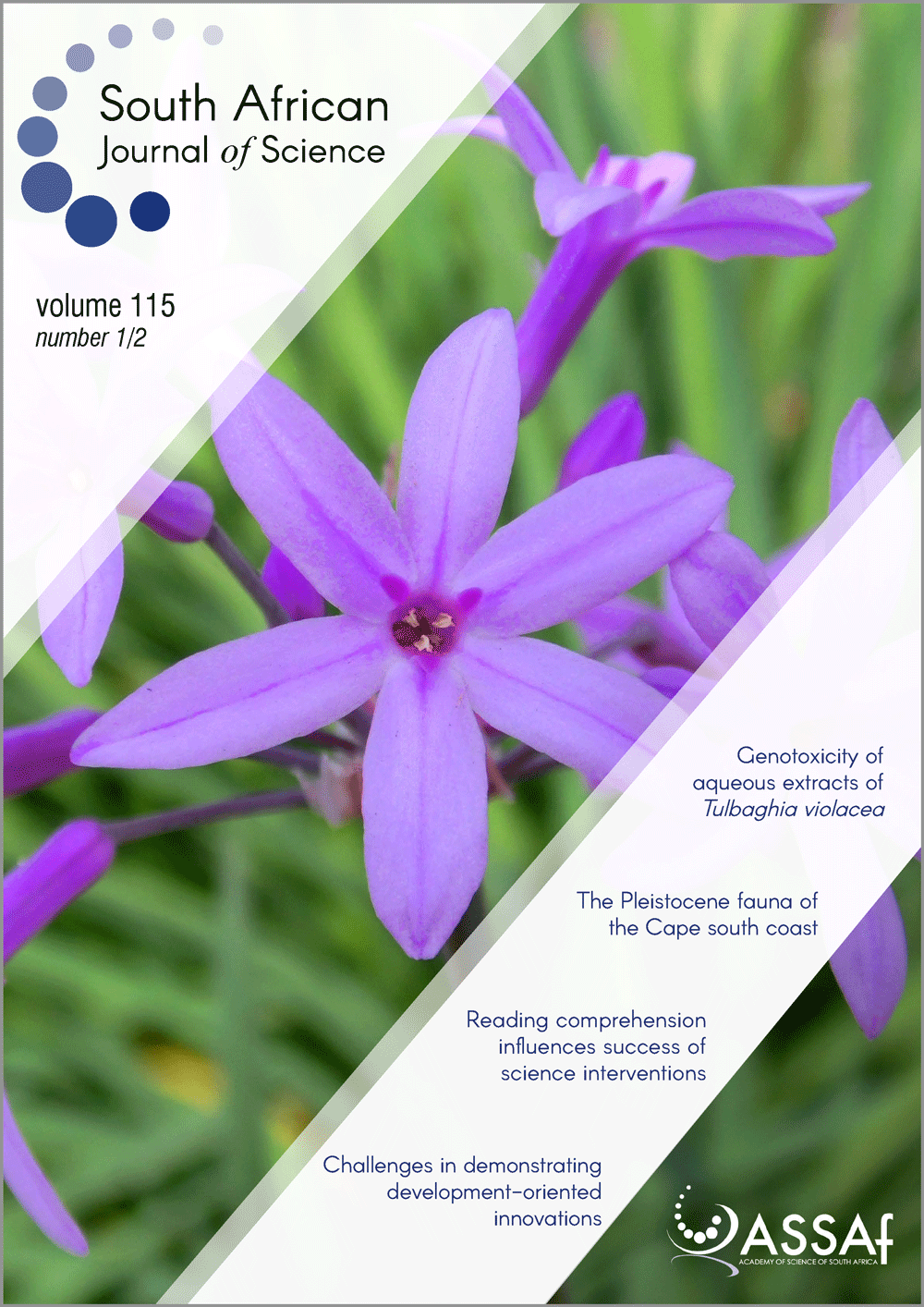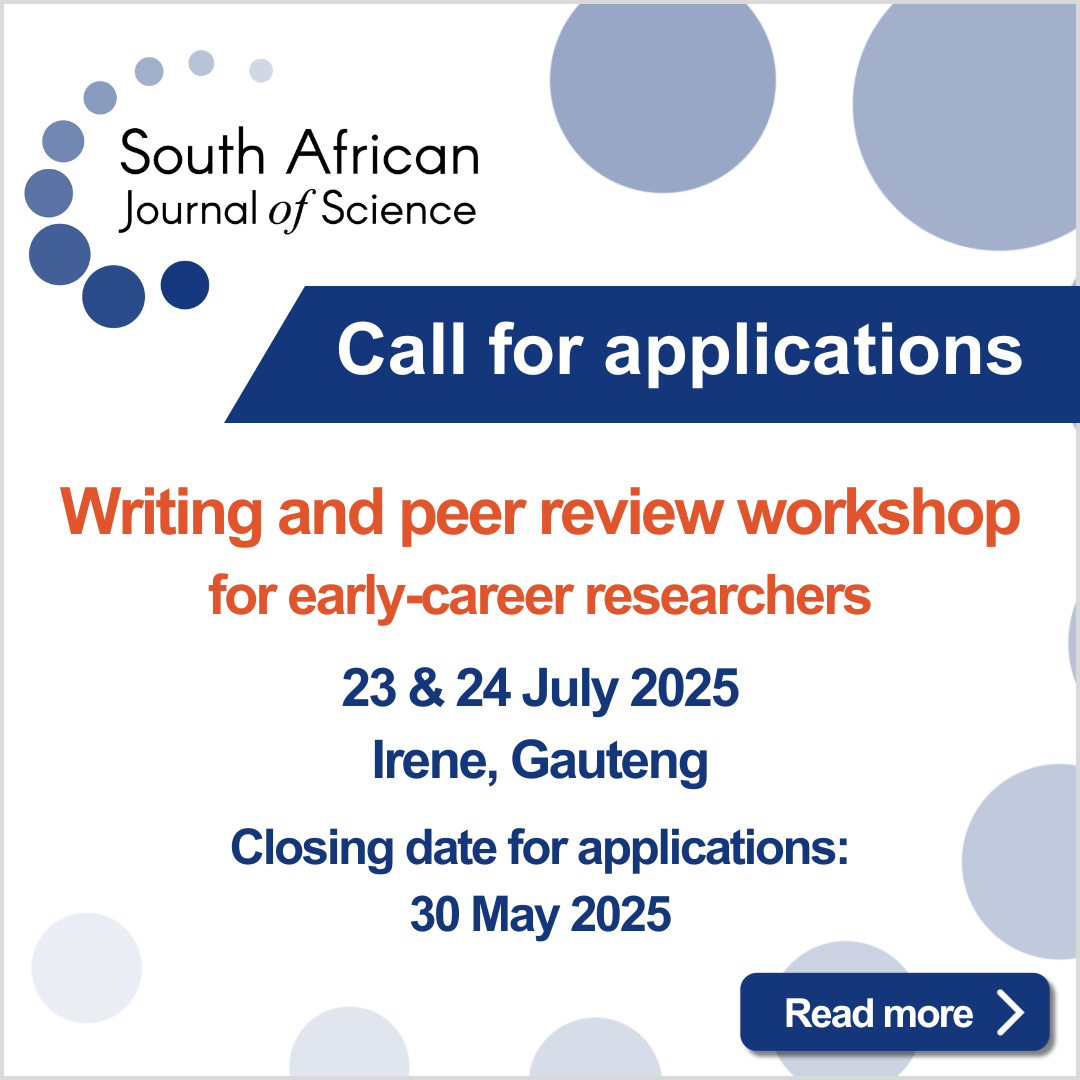The influence of science reading comprehension on South African township learners’ learning of science
DOI:
https://doi.org/10.17159/sajs.2019/5146Keywords:
differential intervention effectiveness, English for science and technology, eye tracking, science education, second-language learningAbstract
The majority of South African township learners have poor reading comprehension skills, which is known to impact negatively on their understanding of content subjects such as science, although the extent of the impact is not fully understood. We explored this impact, as well as the extent to which reading comprehension accounted for the differential effectiveness observed for out-of-class, text-dependent science intervention programmes. Eye movement and mouse-click data were collected from 65 Grade-8 and Grade-9 township learners as they read texts and answered electronic quizzes about electric circuits and lightning on a computer fitted with eye-tracking hardware and software. These data were used to describe the learners’ reading and question-answering patterns and derive a composite English for science and technology (EST) reading comprehension index for each learner. Correlations were sought between this index and the learners’ Natural Sciences marks and the benefit gained from two previous out-of-school science intervention programmes. Most learners were able to engage meaningfully with a less text-rich, moderately familiar quiz, but there was a prevalence of reading avoidance, guessing and reliance on superficial text features to answer questions for a more text-rich, unfamiliar quiz. Moderate to strong correlations were found between the EST index and both Natural Sciences and intervention marks. The findings suggest that while a significant number of higher achieving township learners possess sufficient levels of EST reading comprehension skills to benefit from textbased interventions, the majority require help in developing EST reading comprehension skills to enhance the likelihood of the intervention’s success.
Significance:
- From this study, we infer that a small group of South African township learners, identifiable by their relatively high Natural Sciences marks, are able to read English science texts with sufficient comprehension to be able to benefit from text-dependent interventions, including engagement with self-study interactive software. The majority, however, read such texts at the frustration level, making it unlikely for interventions to be effective if they rely on the learner being able to engage in independent reading.
Published
Issue
Section
License

All articles are published under a Creative Commons Attribution 4.0 International Licence
Copyright is retained by the authors. Readers are welcome to reproduce, share and adapt the content without permission provided the source is attributed.
Disclaimer: The publisher and editors accept no responsibility for statements made by the authors
How to Cite
- Abstract 1562
- PDF 1131
- EPUB 225
- XML 413













.png)